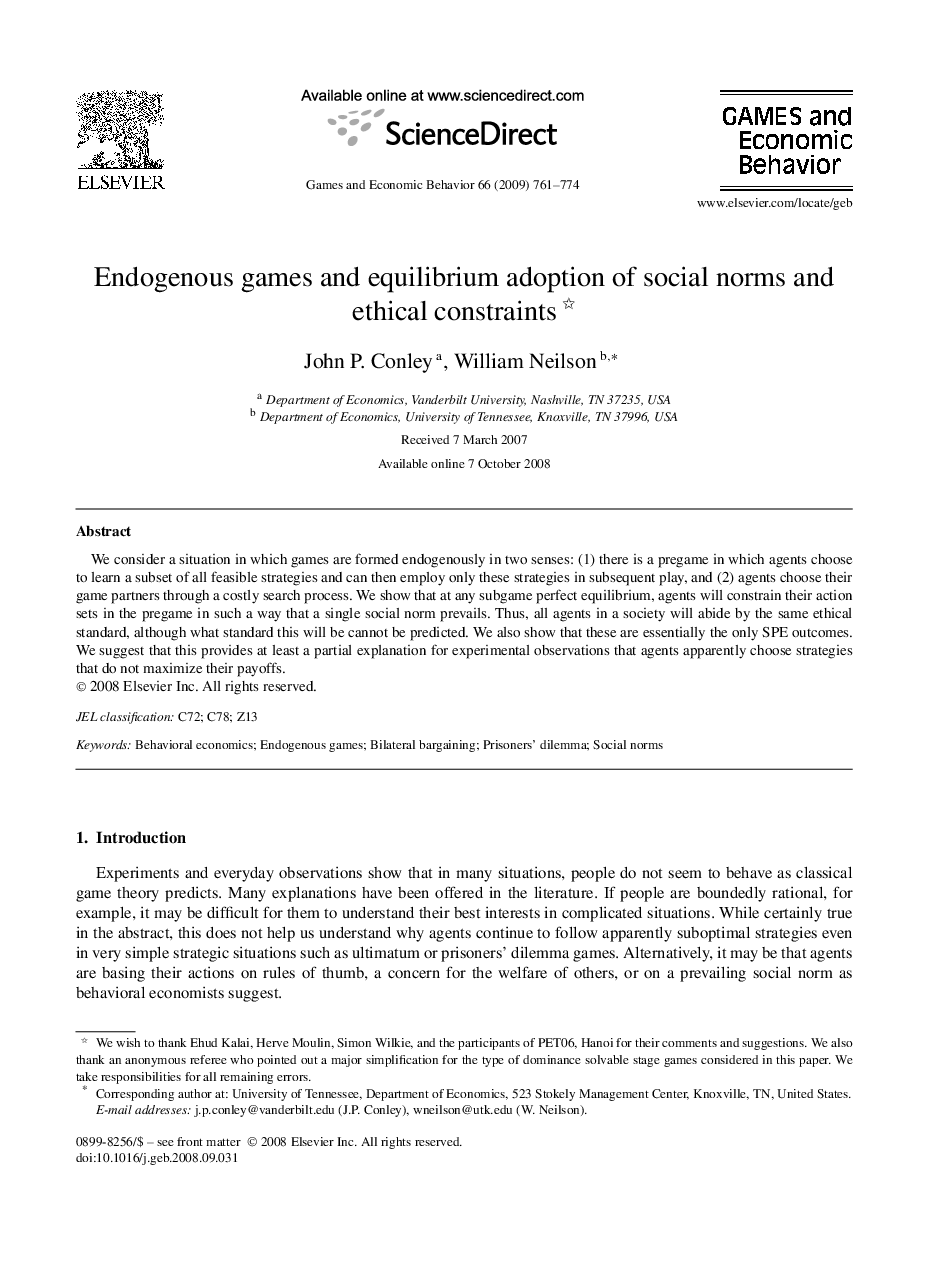| Article ID | Journal | Published Year | Pages | File Type |
|---|---|---|---|---|
| 5072689 | Games and Economic Behavior | 2009 | 14 Pages |
Abstract
We consider a situation in which games are formed endogenously in two senses: (1) there is a pregame in which agents choose to learn a subset of all feasible strategies and can then employ only these strategies in subsequent play, and (2) agents choose their game partners through a costly search process. We show that at any subgame perfect equilibrium, agents will constrain their action sets in the pregame in such a way that a single social norm prevails. Thus, all agents in a society will abide by the same ethical standard, although what standard this will be cannot be predicted. We also show that these are essentially the only SPE outcomes. We suggest that this provides at least a partial explanation for experimental observations that agents apparently choose strategies that do not maximize their payoffs.
Related Topics
Social Sciences and Humanities
Economics, Econometrics and Finance
Economics and Econometrics
Authors
John P. Conley, William Neilson,
